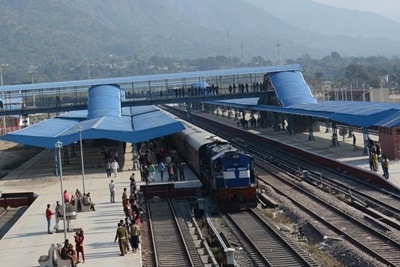The logistics and transportation sector is resigned to the outcome of the current Union Budget for the sector. However, there is a sliver of hope too.
Railways has always been and continues to be the most important source of transportation for freight. However successive railway budgets in the past have only increased the rail freight, straining the finances of all the stakeholders involved in rail transportation.
Most Container Train Operators (CTOs) have a long standing grouse with the Indian Railways (IR), that the freight rates have been increased year on year. With a captive control on the sector, the other stakeholders have no recourse to complaint when rates are hiked. This time around the logistics sector is awaiting the budget with considerable anticipation with the Railway budget being incorporated with the Union budget.
“I do not expect the the railway freight to be reduced,” said a CTO. “However we are seeking for a reduction in the repositioning cost of empty containers to the origin. More often than not a full rake of export loaded containers comes back as empty from the ports for want of cargo. It would be some relief if we are able to get some quantum of reduction.”
[jwplayer i0PPmNBT]
An industry source who did not wish to be identified said that since the Railway budget has been merged with the Union Budget, there would be more circumspection and caution when it comes to any increase in railway freight.
Over the years there has been frequent subsidisation passenger freight at the expense of cargo freight. Successive budgets have hiked cargo freight so much so that there has been a continuous shift from rail to road.
With both budgets under single ownership, the industry expects that there would be a check in rise of railway freights. “Its laughable,” says Girish Singhla, Director RTW Logistics, “that currently the ocean freight from Nhava Sheva to UK is USD250, whereas the Inland haulage Freight New Delhi to Nhava Sheva is in excess of USD1100.”
In the domestic section the IR have kept for themselves certain essential commodities such as Coal/coke, Minerals and Metals, Ore and Petroleum products for transportation within the country. IVS Murlidhar, CEO, Continental Warehousing Corporation (Nhava Sheva), said that it would greatly help the CTOs, if some of these commodities were released to them.
[jwplayer vffub1XP]
Another pressing requirement is acceding industry status to the logistics sector, said Singhla. Much of the irregularities that is present in this sector involved in Customs clearance and Freight Forwarding today would disappear, said Kamal Makhija CEO, Cross Link Shipping Pvt. Ltd. Much of the fly-by-night operators who spoil the logistics landscape would cease.
From 1st of June, 2016, the Central Board of Excise and Customs, in accordance with the Union Budget announced on 29th February 2016, had imposed a Service Tax and other surcharges amounting to 4.5% of ocean freight on all import shipments coming to India on FOB basis (Free on Board). This imposition of the tax, the Indian Freight Forwarders community feel, is completely unjustified. “Once the freight has been pre paid upto the destination, what was the exigency to impose service tax, said an international freight forwarder. This tax on prepaid shipments would have to be rolled back. It was a needless imposition, he emphasised.
(The author of this article Vijay Kurup is a freelance maritime writer with two decades of expertise in the logistics industry. Views are personal)


